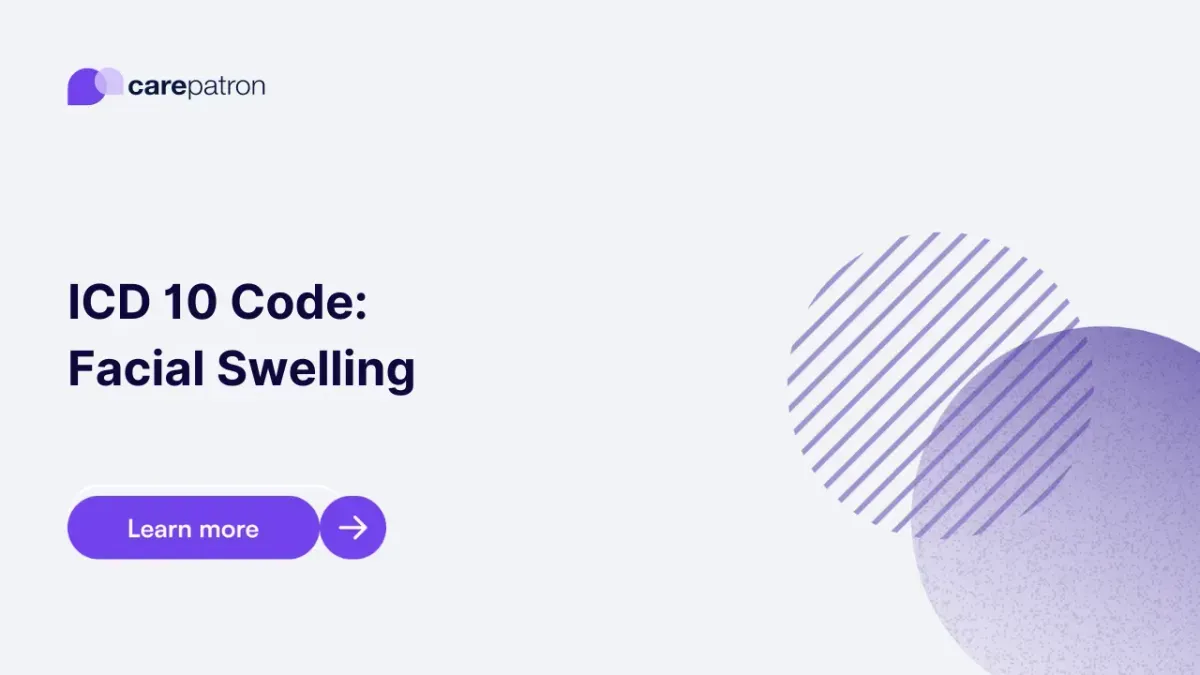
Facial Swelling ICD-10-CM Codes
Learn about ICD-10 codes for facial swelling. Ensure accurate diagnosis and billing for treatment. Understand the codes for precise medical records.
Use Code
Commonly asked questions
Use a facial swelling ICD code when documenting medical conditions that result in facial swelling.
Yes, most facial swelling ICD-10-CM codes. Proper use ensures medical necessity is reflected, especially when linked to abnormal clinical findings, nasal sinus mass, or head lump concerns.
Depending on the severity, treatment varies based on the underlying cause and may include medications, lifestyle changes, allergy management, or surgery.
EHR and practice management software
Get started for free
*No credit card required
Free
$0/usd
Unlimited clients
Telehealth
1GB of storage
Client portal text
Automated billing and online payments
